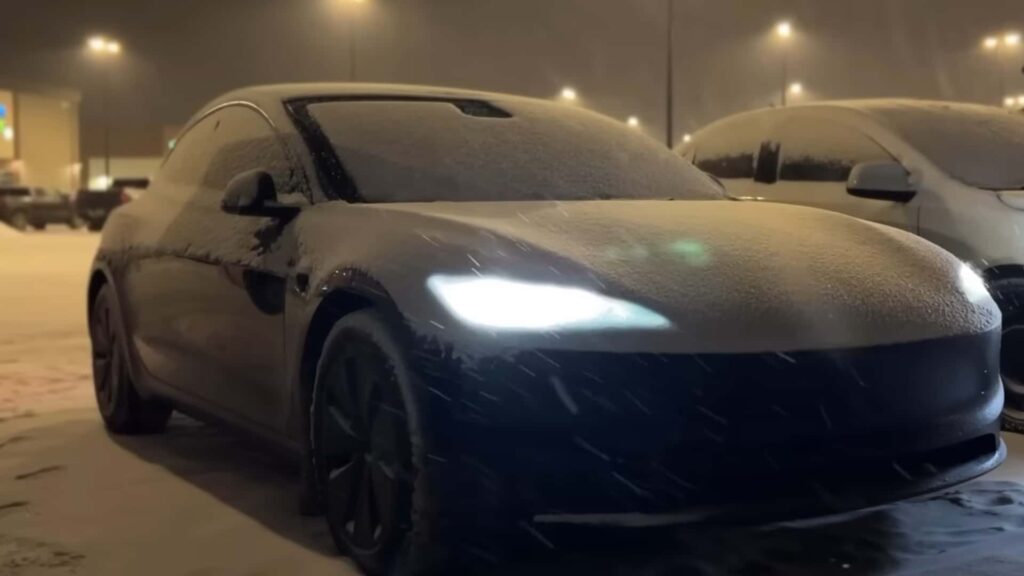Electric vehicles have been gaining popularity due to their efficiency and environmental benefits. One of the key advantages of EVs is their ability to conserve energy, especially when driving at low speeds. However, a recent experiment conducted by a Tesla Model 3 owner aimed to test how much energy an EV consumes while idling in freezing temperatures.
The test was designed to simulate a scenario where a driver is stranded and needs to keep warm. In this situation, the climate control, heated seats, and heated steering wheel were all kept on to maintain a comfortable temperature inside the car. The experiment took place overnight, with temperatures dropping as low as -28 C (-18 F) degrees.
After 12 hours of idling, the Tesla Model 3 Long Range All-Wheel Drive used approximately 34.4 kWh of energy, resulting in a cost of $6.05 based on the average electricity price in the U.S. The battery state of charge decreased by an average of 3% per hour during the test.
In comparison, a gas-powered car with a four-cylinder 1.5-liter engine typically consumes around 0.16 gallons of fuel per hour while idling. Over a 12-hour period, this would result in a cost of $5.76 based on the average gas price in the U.S. While the EV may not be more cost-efficient in this scenario, it offers other advantages such as lower emissions and reduced engine wear.
Leaving a gas engine idling for extended periods can lead to premature engine wear and potential issues with fuel mixing with oil. In contrast, idling an EV produces zero emissions as long as the energy used to charge the battery comes from green sources. This makes EVs a more environmentally friendly option when it comes to idling.
In conclusion, while idling an EV may consume more energy and be slightly more expensive than idling a gas-powered car, the environmental benefits and reduced engine wear make it a preferable option in certain situations. With advancements in EV technology and infrastructure, electric vehicles continue to offer a more sustainable and efficient alternative to traditional gas-powered vehicles.
We regret the error in our previous article and apologize for any confusion or inconvenience it may have caused. It is important to us that our readers receive accurate and reliable information, and we take full responsibility for any mistakes that may have been made.
In our original article, we reported on a new study that claimed to have found a link between a certain type of food and an increased risk of cancer. However, upon further investigation, we have discovered that there were errors in the study’s methodology and data analysis. As a result, the conclusions drawn in the study are not scientifically sound and should not be taken as fact.
It is crucial for us to ensure that the information we provide is thoroughly researched and fact-checked before publication. We understand the impact that misleading information can have on our readers, and we are committed to upholding the highest standards of journalistic integrity.
Moving forward, we will be more diligent in our fact-checking process and will work to prevent similar errors from occurring in the future. Our goal is to provide our readers with accurate and trustworthy information that they can rely on.
We appreciate your understanding and patience as we work to correct this mistake. Thank you for your continued support and readership.

